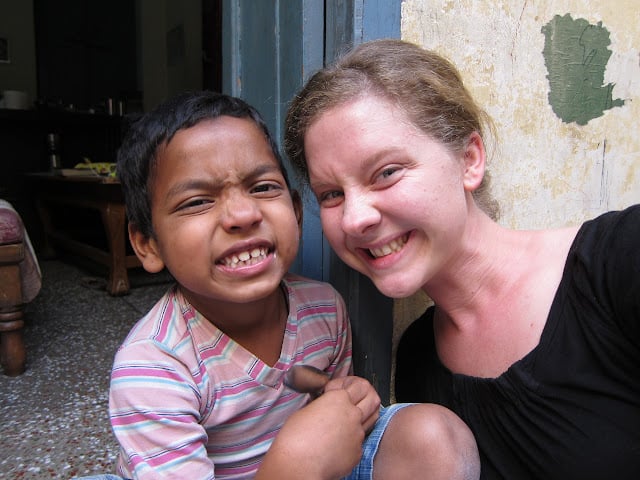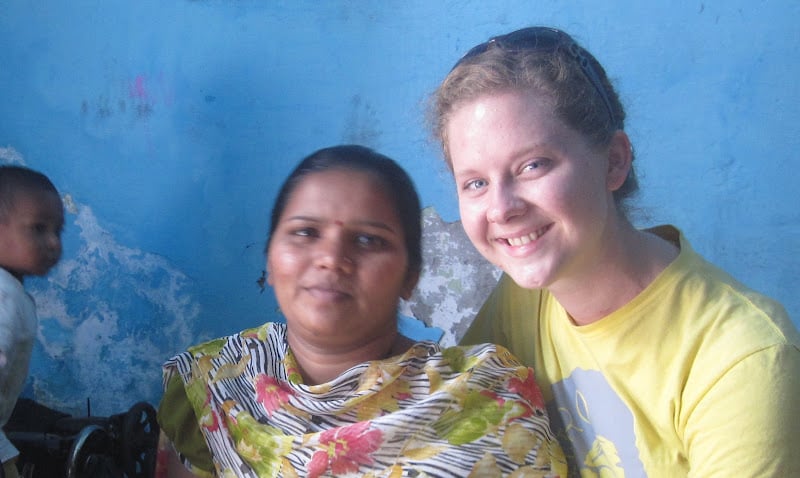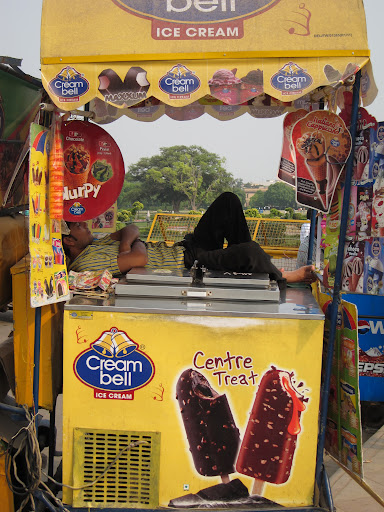Thirty-two little faces can be a lot to take in.
Our first day at Asha Mission was a storm of faces and names we couldn’t pronounce. I was sure that I wouldn’t remember anything they told me that day, and I was mostly right. But I did remember this guy.

He was much quieter than the other kids, and hung back from the big groups. He’d want to do what they were doing, but always waited and watched everyone else. Something about him reminded me of the runt in a litter of puppies.
Nihal is only 7, making him one of the younger kids at Asha. His English is still just basic, so it’s hard to have a real conversation… but he is pretty much an expert at “Boom, Snap, Clap” now, so that’s how we spend most of our time. He waits for me in the mornings and sits by me at prayer time. We play tag on the roof. If he were able to, I know he would tell me about his mom.
Pastor Sharma took us to visit a leper colony earlier this week. We didn’t think much of it; we’re in India, we like to pray for people, what better place? So we drove for an hour through Delhi traffic to a small gathering of low earthen buildings behind a stone wall. When we walked through the gate, several women ducked out from their doorways to greet the pastor. They spoke in Hindi for a bit, then he introduced them to us.
“She is Vivek and Varun’s mom.”
We were kind of confused… none of the kids had been able to tell us much about where they’d come from, but it seems that some of them came from here. From a leper colony.
Pastor turned to another woman who had just approached.
“This is Nihal’s mom.”
I must have lit up like a kid at Christmas. I looked again at the woman; her face was framed by shiny dark hair wrapped in a yellow scarf. It was Nihal’s face. A 10-year-old girl stood next to her. She had his face too!
Gestures and a few English words were enough to tell her, “I know your son. He is awesome!” She wanted to see pictures, so I called Amy over to show her a few snapshots we had taken on her camera the day before. She beamed at the sight of him, tapping her chest and saying “My boy.”
More and more kids gathered around the tall white girls, so Pastor led us to the church building where we could all sit. Nihal’s mom offered us Mountain Dew, and we passed out the bananas we had brought.

Just like with her son, real conversation wasn’t very easy. But she smiled a lot, and I did too. I like to think that, like any good mother, she can tell who cares about her kids. That’s all I really wanted her to know.
When we got back to Asha later that day, I found Nihal and showed him the pictures of his mom. I don’t know how long it has been since he last saw her. But at the sight of the pictures of his mom and sister, he grinned and did that funny Indian head wobble. And just like his mom, he tapped his chest and said, “Mine.”
Asha isn’t exclusively an orphanage. Some of the kids were abandoned, but others have regular contact with their parents, even visiting them sometimes. Many of them are from nearby slums and leper colonies. I’m not sure what I expected a leper colony to be like, but what did surprise me was this: most of the people there don’t have leprosy.
The older generation were all missing fingers and toes… some of them lacked feet altogether. They are the ones who were forced to live completely separate from society. So in that colony, their families grew. And what opportunities for work or school are present in such a place? Their children and grandchildren don’t have anywhere else to go.
So Asha and many other similar mission societies step in. They get healthy food, medical attention, and good education. But it does come at a cost. Can you imagine sending your child away at that age?
For those of you who sponsor a child through something like WorldVision or Compassion, the kids you sponsor are in similar situations. Beyond what those organizations may send you each month about “your” kid, know that you’re not just providing the basics for that child… you’re giving hope to his entire family. Forgive me for sounding like a cheesy infomercial, but I’m serious! That hope is what I saw in Nihal’s mom that day. And how appropriate: in Hindi, asha means hope.
-Katie
P.S. two amazing women in my life spent 6 weeks in New Delhi a few years ago. They have a fun “coffee table” book from their experience. Jo and Crystal, this picture is for you!









